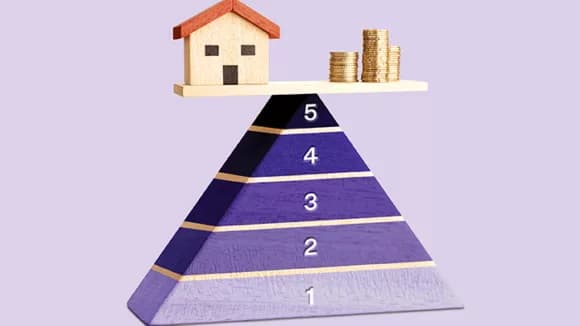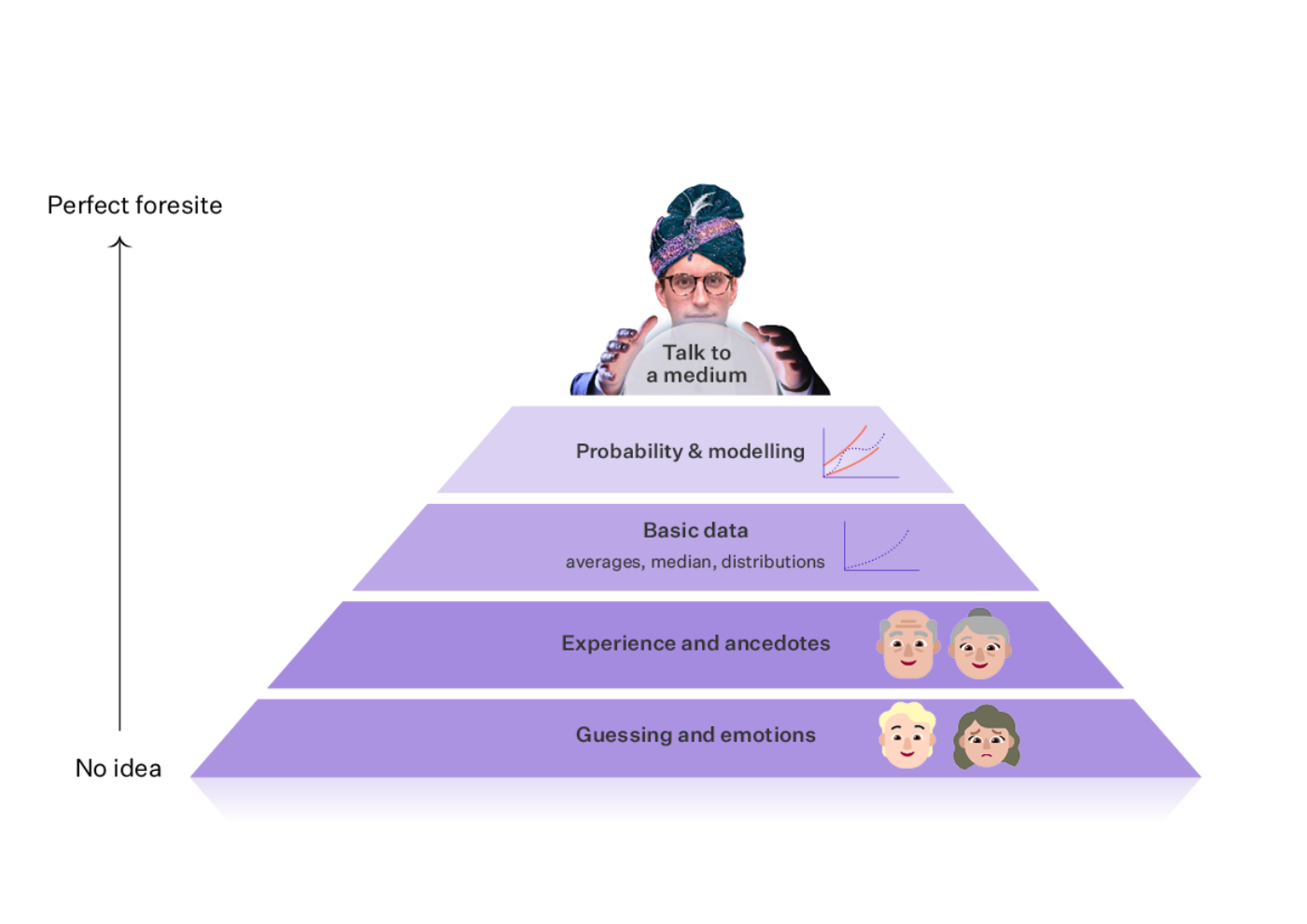
Property Investment
Property Investment
5 min read

Author: Andrew Nicol
Managing Director, 20+ Years' Experience Investing In Property, Author & Host
Reviewed by: Ed McKnight
Resident Economist, with a GradDipEcon and over five years at Opes Partners, is a trusted contributor to NZ Property Investor, Informed Investor, Stuff, Business Desk, and OneRoof.
When you invest in property, you need to make a lot of decisions.
These are important: You’re buying an asset worth hundreds of thousands of dollars.
So you need to be honest with yourself. You need to know how you’ll make the decision and how good your thinking is. After all, some decisions need better quality thinking than others.
Here at Opes, we want to help you make high-quality decisions backed up by facts.
That’s why we came up with the 5 levels of decision-making. This gives you a framework to think about the decisions you make.
You can challenge yourself to say: “Am I making a good decision, or is it more emotional?”
Let’s go through the decision-making model.

This type of thinking says things like: “My house won’t ever go up in value.”
At the very base is guessing and emotions. Most investors make their decisions here.
This is where you base your decisions on what your like.
You might say things like: “I wouldn’t live in a 2-bedroom townhouse. This won’t be a great investment.”
Or you might say, “Everyone has 2 cars these days. I need a double garage for this to be a good investment.”
None of this is backed up by data or facts (and is factually incorrect). It’s just based on the investor’s personal preferences.
This is where emotions run high.
Here’s another example. At the time of writing property prices have been falling. So some investors think: “My house will never go up in value. I’m done with this. Let’s just sell it.”
This is not a good way to make a decision. Our brains would rather stay away from risks rather than move towards wealth.
This is the worst level of decision-making because it’s based on your worst fear rather than any form of reality.
This type of thinking says things like: “Sometimes the market is hot, sometimes it’s cold. Be in the market for the long term.”
A level up from emotions, this information based on someone else’s experience.
And you can learn a lot from another person’s wisdom; people who have seen the ups and downs of the market.
This is where many investors say things like, “It’s time in the market, not timing of the market that counts.”
But remember this: one person’s experience doesn’t often represent what happens to everyone.
Your neighbour Steve might have had a bad run of tenants and say, “Don’t invest. Tenants don’t treat your property with respect.”
That might have been Steve’s experience, but that’s not what happens with most investors.
The thing to remember here is that while we can get some good wisdom out of others, it is just one person’s experience.
We shouldn’t make decisions based on what happened to one other person, but we can listen to 20 people’s experience to build a better picture.
This brings us to the next level.
This type of thinking says things like: “Property value has gone up by 7% on average, every year. I better hold on.”
At the next level, we move into facts. We use basic data to understand things like the average, or the median.
Here’s an example. On average, Auckland house prices have risen 7% per year since 1992 (Jan ’92 – Oct ’23).
So, if your property’s value has gone down, you might think, “I’ll hold on, property values tend to go up over the long run.”
This sort of data can be useful. It gives us an understanding of what may or may not happen over the next 20 years.
However, there are limitations to this data. It just shows the average, and the average increase won’t happen every year.
Sometimes it’s more; sometimes it’s less.
This is why we can take it even further.
This type of thinking says things like: “There is a 70% chance my house goes up in value this year.”
Now we move into probabilities and chances. This sort of data doesn’t just show the average.
Here’s an example of the change of losing money in Auckland property:
As we said, property values tend to go up 7% a year, but in the first year there is a 30% chance your house goes down in value.
Over time the probability of losing money goes down.
In 20 years there is a 98% chance your house goes up in value to some degree.
Sure, on average property prices go up 7%, but that doesn’t happen every year. And there is still a small chance it doesn’t happen.
Probability and modelling helps you understand what might happen year to year.
That is a better level of decision-making.
The only drawback with this is that it takes a lot of number crunching, so this data is not always available.
This type of thinking says things like: “Oh mighty tea leaves, when will the market recover?”
This level is a joke. It’s suggesting the only way to gain a perfect understanding of what will happen in the future is to:
The point here is that you can’t perfectly know what will happen in property. We make decisions even though the future isn’t fully locked in or guaranteed.
The best we can do is understand the data and probabilities, then make the best decision we can.
My challenge to you, as an investor, is to move up the levels of decision-making.
If you find yourself worrying about a decision, look at the 5 levels. Identify which type of decision you’re making, then try to move up a level.
In this article, we’ve used the fear of house prices never rising, but another common fear for investors is that they’ll never get a tenant.
So, if you’re currently at level 1 (emotional decisions), move to level 2. Ask another investor about their experience getting tenants.
After that, look at the data (level 3). And then, if you can, see if you can get to that higher level of probability and modelling.
It’s about challenging your initial doubts and fears to see if you can move them into a more sophisticated way of problem-solving.
Managing Director, 20+ Years' Experience Investing In Property, Author & Host
Andrew Nicol, Managing Director at Opes Partners, is a seasoned financial adviser and property investment expert with 20+ years of experience. With 40 investment properties, he hosts the Property Academy Podcast, co-authored 'Wealth Plan' with Ed Mcknight, and has helped 1,894 Kiwis achieve financial security through property investment.
This article is for your general information. It’s not financial advice. See here for details about our Financial Advice Provider Disclosure. So Opes isn’t telling you what to do with your own money.
We’ve made every effort to make sure the information is accurate. But we occasionally get the odd fact wrong. Make sure you do your own research or talk to a financial adviser before making any investment decisions.
You might like to use us or another financial adviser